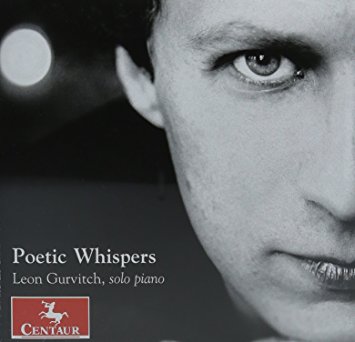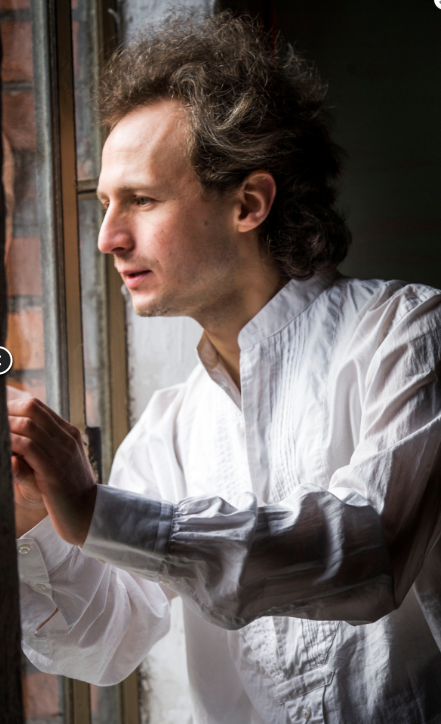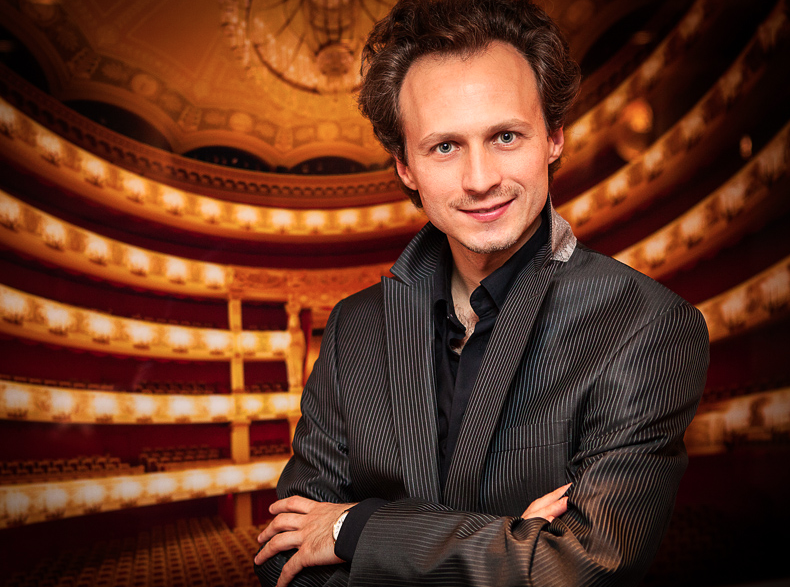Pianist/composer Leon Gurvitch: Poetic Whispers - read my review
Buy the CD
Buy the music
Visit Leon Gurvitch’s web site
Download a PDF of my review
Composer, pianist, and conductor Leon Gurvitch can’t help himself. Freedom - artistic, intellectual, and personal - is writ large in his approach to the world. His music-making in particular mirrors his thinking; a stunning mastery of improvisation, fearless interpretations of works previously thought sacrosanct. His 2017 disc of piano music on the Centaur label, Poetic Whispers, is stunningly original. In addition to his own compositions, all metaphors in sound, five composers who have guided his artistic journey are represented. Igor Stravinsky, Joaquín Rodrigo, Erik Satie, Gabriel Fauré, and Astor Piazzolla are not so much reproduced in the flesh (their notes on paper) as in kindred spirit. Gurvitch tinkers with their music as a baker might a recipe, and the result is a Babette’s Feast of intelligent improvisatory genius.
The CD opens with its namesake, Poetic Whispers, the first of seven original compositions and free improvisations by the composer/pianist. A superb melding of classical technique and savvy understanding of the colors of contemplation - harmonic progression - Whispers is rich in interpretive styling and narrative curve despite it’s too brief four minutes. Even shorter in duration, but joyous in its celebration of another genius, Gurvitch’s Hommage à Stravinsky composed in 2015 captures, with the elan of Petrushka, the spirit of one of the twentieth century’s freest spirits.
Another pair of Gurvitch originals follow - Autumn Song and the entirely improvisational November. Together, they evoke the change of season; waning daylight, quiet contemplation, and not a little sadness. With subdued, mesmerizing prescience, Gurvitch uses the melodica, with its free-reed organ/harmonica colors, as a melancholic solo voice over a “rustling leaves” piano ostinato in Autumn Song. Gently Jazz infused, as is all his music, there can also be heard an occasional and barely audible (except to the soul) percussive ping, which is somehow consciousness-raising. The arc of improvisation on melodica intensifies, soars, peaks in joy, then settles for the winter. And in the same pensive spirit, Gurvitch’s thoughtful November improvisation satisfies and comforts.
Impressions after Adagio from Concierto de Aranjuez (Joaquín Rodrigo) is a florid, lilting, energized, and moodily playful dissection by the artist of the Iberian character of Rodriguez’ masterpiece. An example in spades of Gurvitch’s technical prowess at the keyboard and his on-the-spot improvisational genius, a listener can discern fragments of the Adagio, but is otherwise swept away by the atavism of it all; Gurvitch channeling the First Marquis of the Gardens of Aranjuez, a virtuoso pianist in his own right, in the freewheeling daylight of virtuosity.
Likewise, Gurvitch’s fascinating, quasi-improvisational take on Gabriel Fauré’s Pavane. Ignoring the babble of purists and tearing up the written page, Gurvitch renders impotent by comparison, most of the performances this listener has heard over the past half century or more, and liberates this war horse from its chains – a stunning and intellectually defensible re-thinking that minces tradition. Fauré for example, played the piece at something just under a galop. Gurvitch on the other hand, lingers lovingly over each cadential moment, is sprightly where generations of pianists have not thought to be, and reveals without pretense, his thorough technical and interpretive command of the score. Marvelous.
Rainy, another image-filled Gurvitch improvisation, with its opening tinkling (rain) and intermittent darker musical structures (clouds), is simply delightful. Lovely jazz riffs, gorgeous and expressive like all his playing, conjures Fred Astaire dancing in the precipitation. Erik Satie’s Gymnopédie No. 1 follows, in a realization studded with Gurvitch’s innovative rhythmic embellishments and marvelous improvisatory stylings. Another Gurvitch improvisation Reflections, is brief but harmonically dense and dynamically large.
For Astor Piazzolla’s deeply moving Oblivion, Gurvitch makes use once again of the melodica for the solo voice - a superb sonic stand in for the evocative Argentinian bandoneon - and effectively sets the mood, like tapas before the main course, for Piazzolla’s spacious tone poem Milonga del Ángel. A brief chordal exposition by the pianist sets up the main tune, which Gurvitch nourishes with the tenderness of a true devotee - an interpretation that soars head and shoulders above previous performances of the piece in this listener’s experience. Capturing the very soul of tango, Gurvitch knows intuitively, that music is to be toyed with, expanded upon, filtered through one’s own sensibility, and does so here, tinkering with meter, tempi, rhythmic stylings, and discreet embellishment.
The final track on Leon Gurvitch’s extraordinary Poetic Whispers CD is another brief but emotion-packed improvisation titled simply, Lonely. A meditation on yearning and perhaps the isolation of deep thinkers, the piece also speaks to resilience and strength – an apt musical metaphor for a man who has lived the life of a stranger in a strange land since immigrating from Belarus to Germany in 2001 shaping an extraordinary career for himself in the greater world of art.
Daniel Kepl | Performing Arts Review


Poetic Whispers - Leon Gurvitch

Hommage a Stravinsky - Leon Gurvitch

Joaquín Rodrigo: Adagio from Concerto d'Aranjuez - Leon Gurvitch



